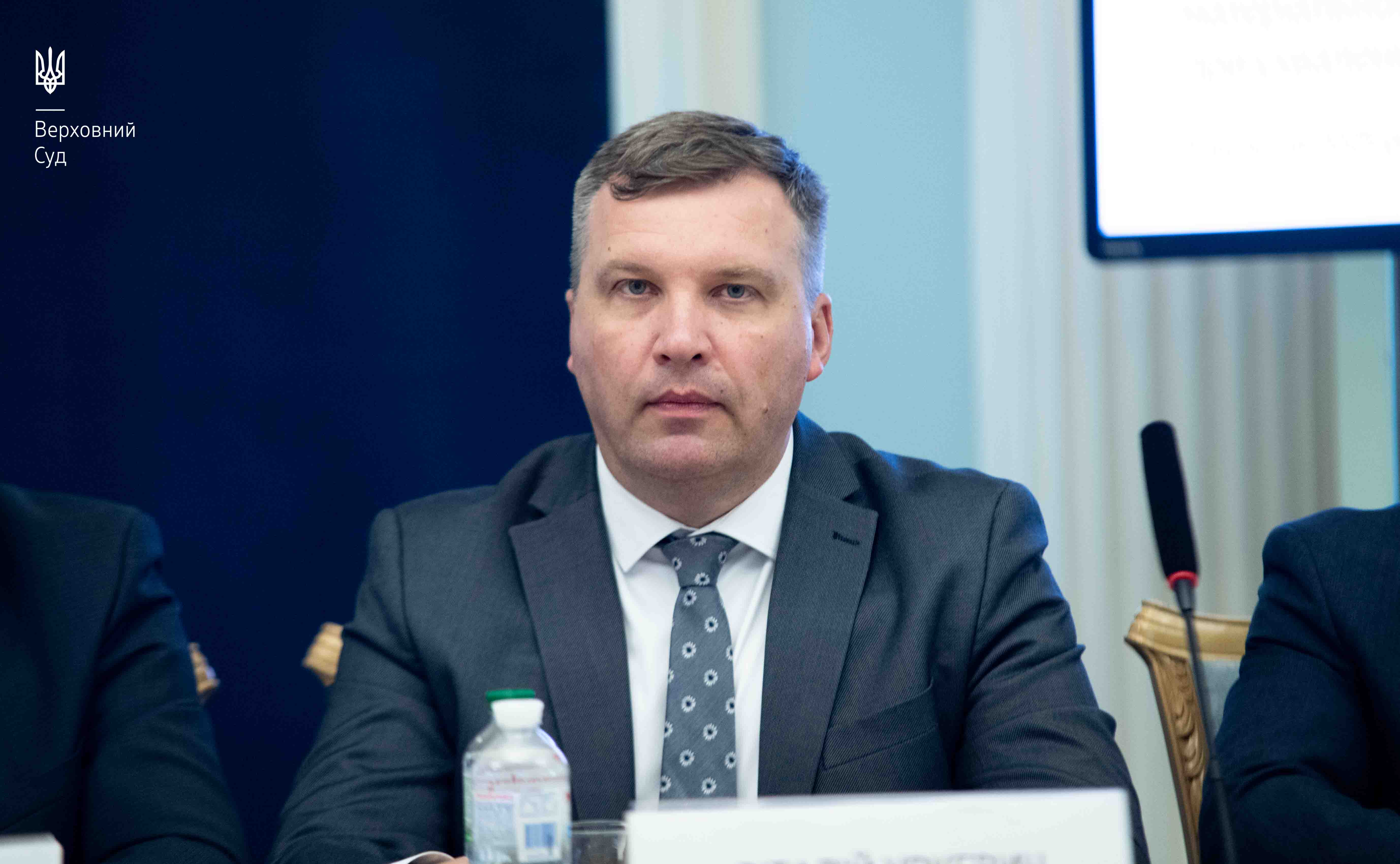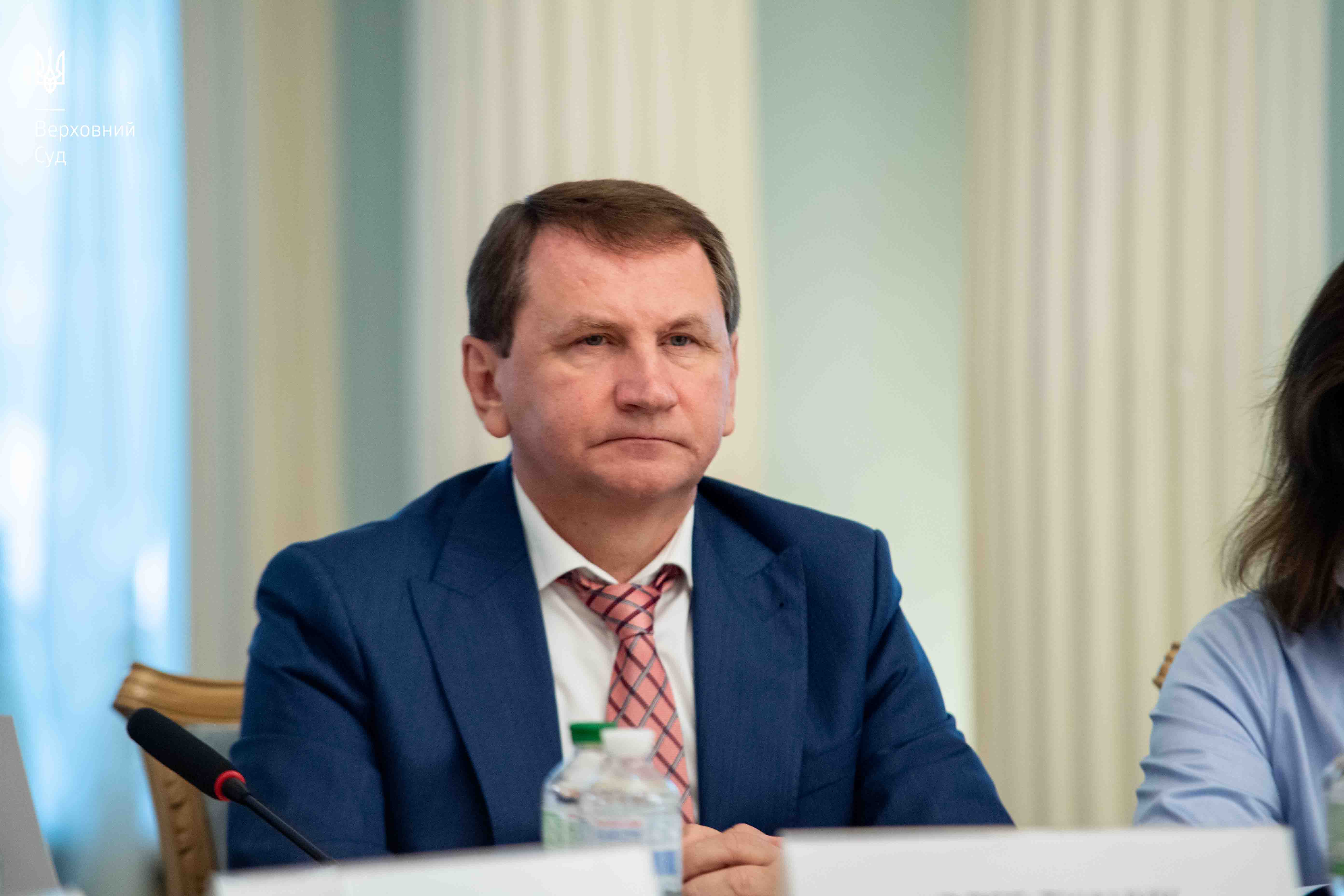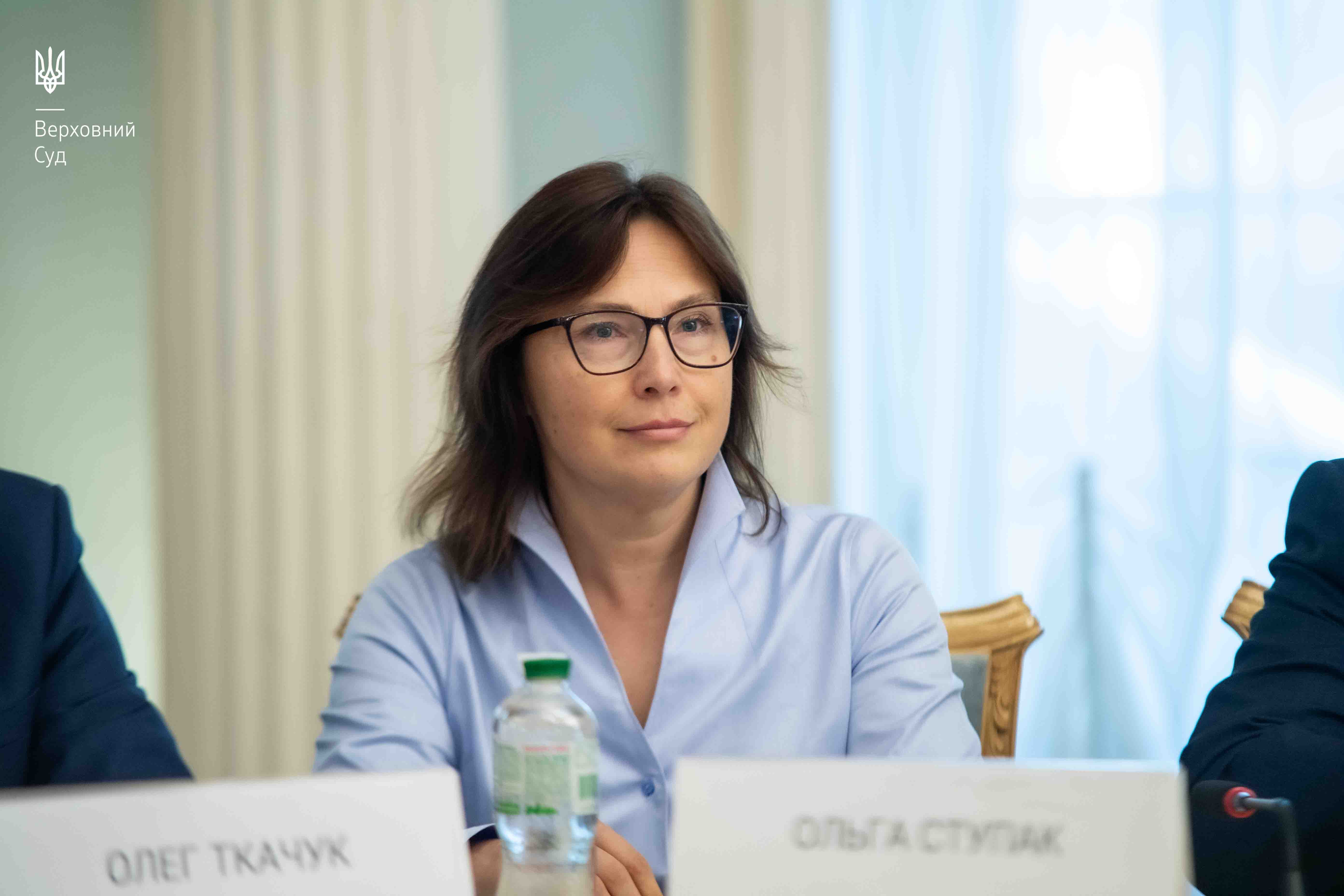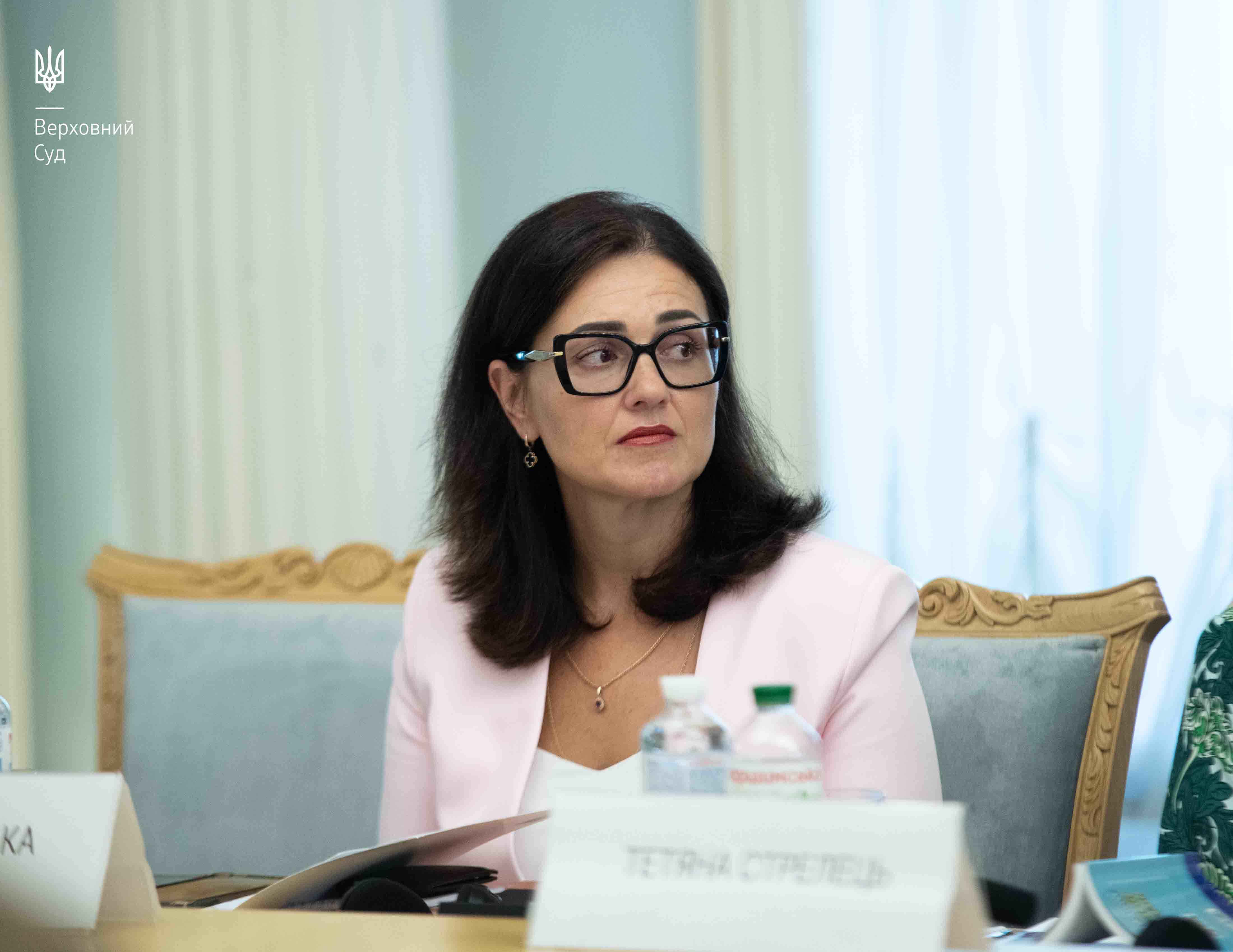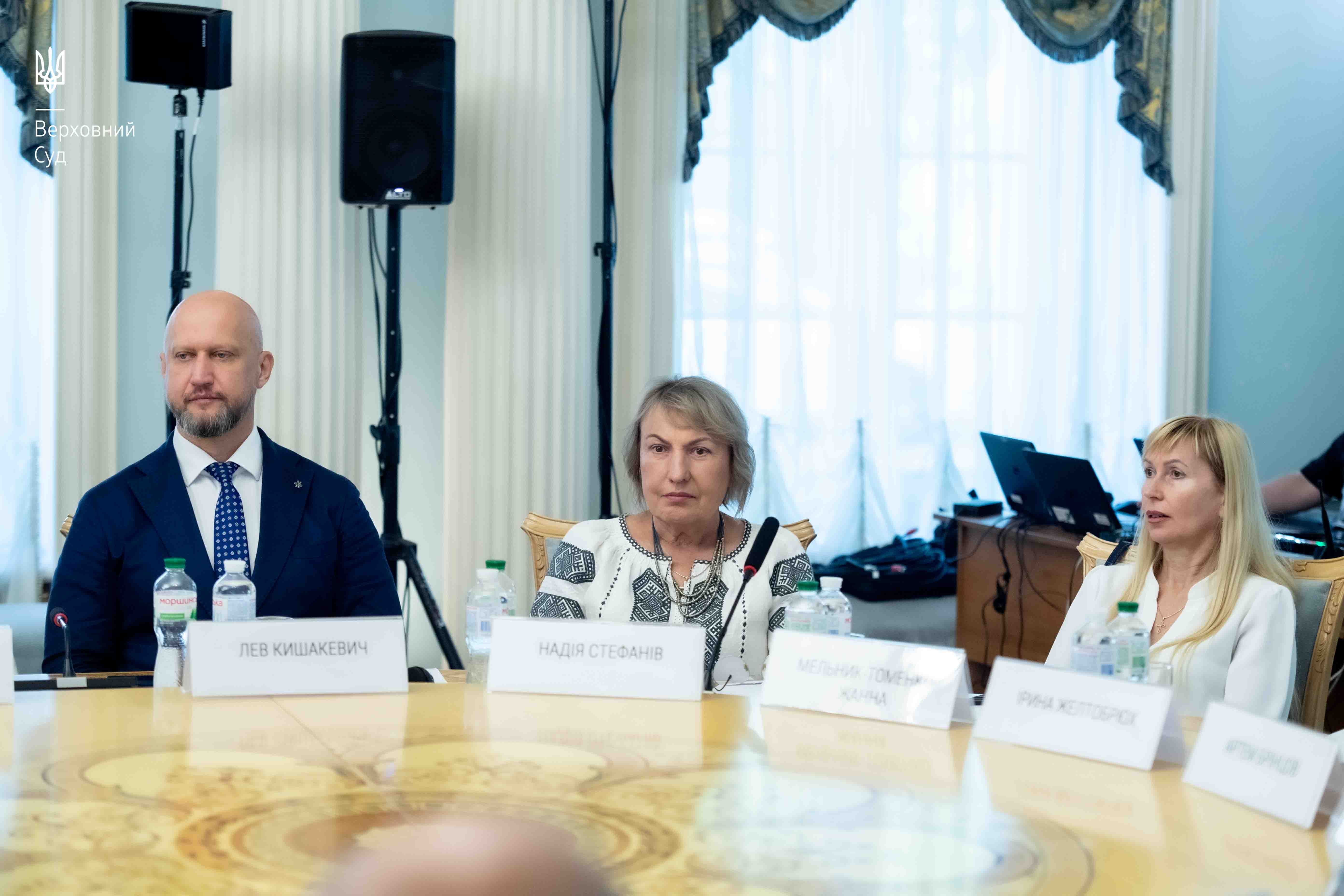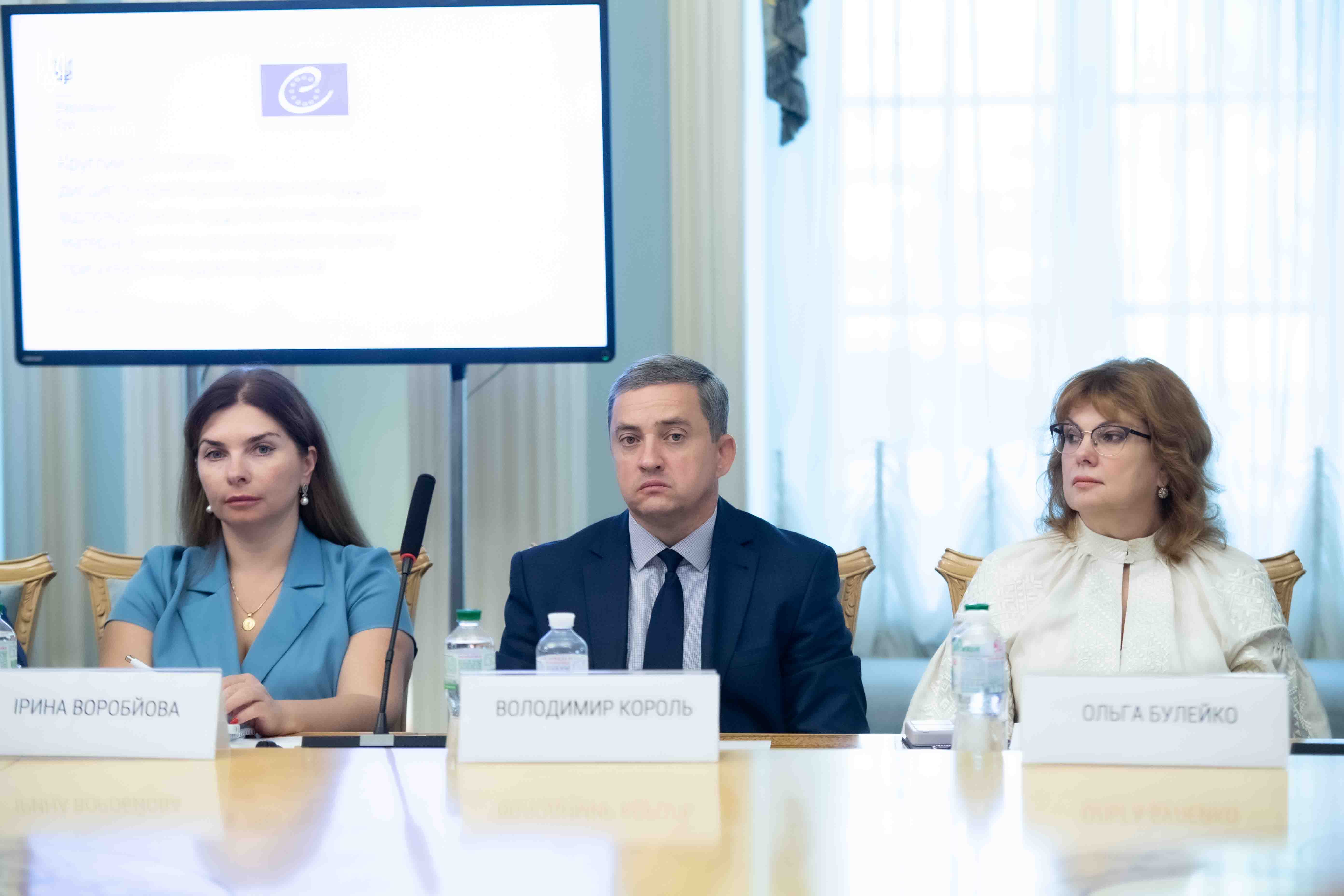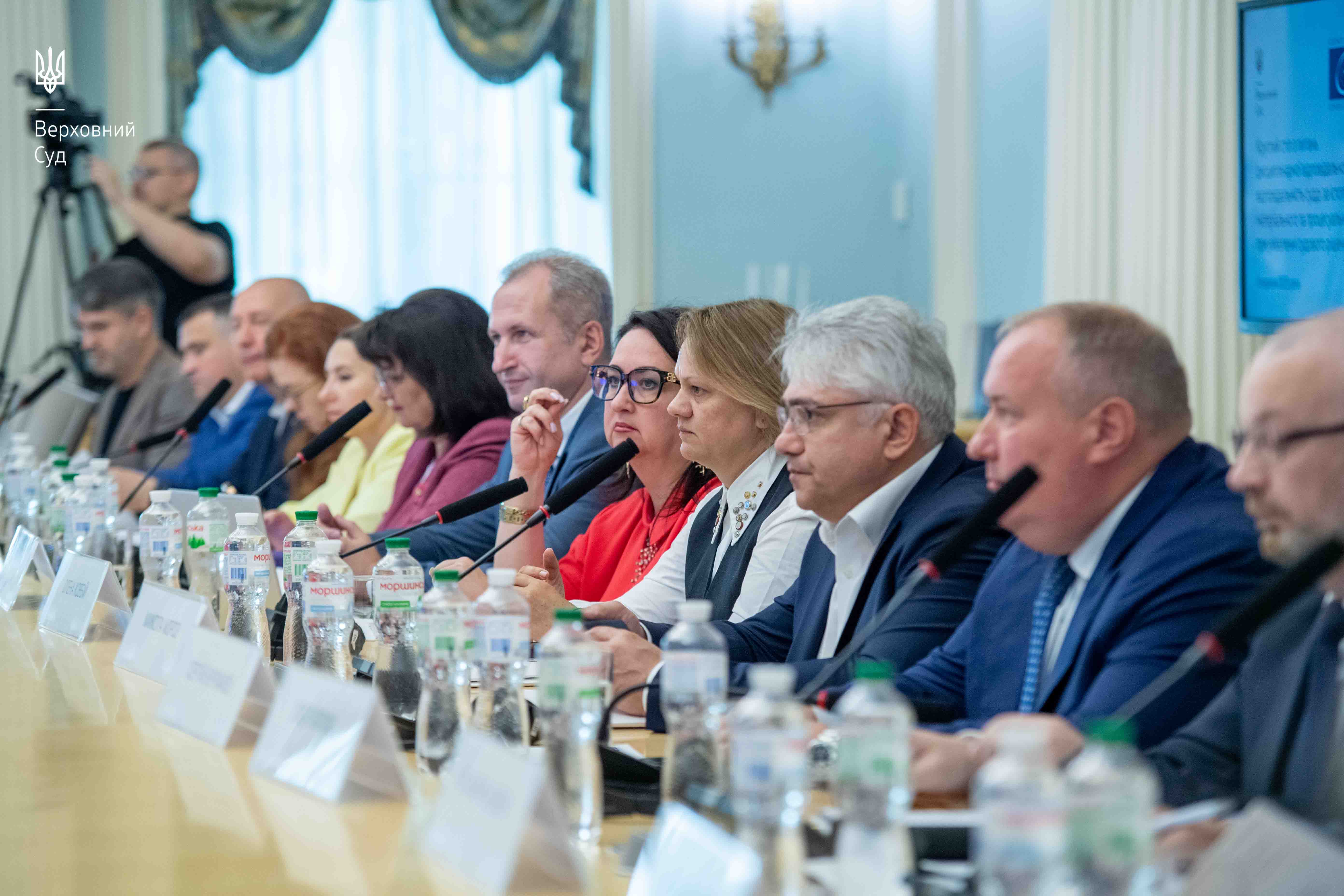Contact center of the Ukrainian Judiciary 044 207-35-46

A legal and democratic state cannot exist without an independent judiciary. Therefore, today, when the European integration process is in its active phase, the issue of judicial independence remains one of the top priorities.
Attempts to limit this independence have occurred at various stages of state development and have manifested in different forms, including through the mechanism of bringing judges to disciplinary liability.
This was emphasized by Stanislav Kravchenko, the President of the Supreme Court, during the roundtable discussion “Responsibility of a Judge for a Substantial Violation of Substantive and Procedural Law When Rendering a Court Decision”, organized by the Supreme Court in cooperation with the Council of Europe project “Support to the functioning of justice in the war and post-war context in Ukraine”.
The event became the first platform bringing together representatives of the Supreme Court, the High Council of Justice, the High Qualification Commission of Judges of Ukraine, and experts from the Council of Europe to discuss problematic issues of judicial disciplinary liability and to seek ways to resolve them.
According to Stanislav Kravchenko, an analysis of complaints submitted to the High Council of Justice shows that a significant number of disciplinary proceedings are initiated solely as a means to remove a judge from a case or to retaliate for a rendered decision. At the same time, there are also attempts to employ more serious mechanisms—namely, bringing a judge to criminal liability.
.jpg)
Under the Constitution of Ukraine, a judge cannot be held liable for a decision rendered in the course of administering justice, except in cases of committing a crime or a disciplinary offence. Nevertheless, for many years, the issue of how to define the boundary between judicial independence and judicial accountability has remained a subject of debate.
Over nearly eight years of operation, the Grand Chamber of the Supreme Court has developed a number of legal positions concerning problematic aspects of this category of cases, while the High Council of Justice has also formed its own approaches. However, the percentage of High Council of Justice decisions on bringing judges to disciplinary responsibility that have been annulled by the SC Grand Chamber indicates divergent views and inconsistent approaches to shaping disciplinary practice.
.jpg)
Therefore, the purpose of this roundtable was to analyze relevant decisions of the Grand Chamber of the Supreme Court and the High Council of Justice and to discuss specific aspects of such practice in order to develop a common vision and understanding of the issues.
In conclusion, the President of the Supreme Court expressed gratitude to the Council of Europe and its project “Support to the functioning of justice in the war and post-war context in Ukraine” for their long-term fruitful cooperation and assistance in organizing this event.
The discussion was moderated by Iryna Kushnir, Project Manager of the Council of Europe’s “Support to the functioning of justice in the war and post-war context in Ukraine” project, who emphasized the sensitivity of the issue of holding judges disciplinarily liable.
.jpg)
In her welcoming remarks, Oksana Kvasha, Deputy Chair of the High Council of Justice, noted that discussions about ensuring the effectiveness of the justice system and maintaining judicial independence are, above all, about strengthening public trust in the judiciary. In her view, maintaining a reasonable balance between judicial independence—as a guarantee of the rule of law—and disciplinary accountability—as a manifestation of judges’ responsibility before society—is the duty of the entire justice system. This balance is necessary to ensure the consistency of judicial practice and the High Council of Justice’s disciplinary case law.
.jpg)
Oleh Koliush, Deputy Chair of the High Qualification Commission of Judges of Ukraine, noted that the issue of judges’ disciplinary responsibility is relevant not only for Ukraine but also for European countries. A notable example is Opinion No. 27 adopted by the Consultative Council of European Judges (CCJE), which is entirely devoted to the issue of judicial accountability. He emphasized that disciplinary responsibility of judges is essential for ensuring the proper administration of justice in accordance with European standards and for strengthening public trust in the judiciary. At the same time, addressing judges’ liability for violations of substantive or procedural law requires a balanced and thoughtful approach.
.jpg)
“As stated in Opinion No. 27 of the CCJE, a judicial decision itself, the interpretation of legal norms, or the assessment of evidence cannot serve as grounds for disciplinary liability of a judge unless there is evidence of malice, intentional neglect of duties, or serious misconduct. That is why this discussion is extremely important, and we appreciate the opportunity to share our experience,” summarized Deputy Chair of the High Qualification Commission of Judges of Ukraine.
Oleh Kryvenda, Judge of the Grand Chamber of the Supreme Court, emphasized the need to combine the principle of judicial independence with clear and fair regulation of judicial accountability.
.jpg)
In Opinion No. 27 of the Consultative Council of European Judges (CCJE), the judge recalled, it is emphasized that judicial independence is inseparable from clearly defined grounds and limits of disciplinary liability. If such limits are not transparent, this may lead to the loss of guarantees of judicial tenure and to the risk of using disciplinary procedures as a tool of pressure. Therefore, when considering disciplinary cases, it is essential to distinguish between errors made by a judge in good faith and those resulting from intentional or negligent misconduct.
Oleh Kryvenda drew attention to the current realities in which justice is administered: courts often operate with insufficient staffing, excessive workload, and under the ongoing conditions of Russia’s armed aggression. These factors objectively affect the adjudication process. Thus, it is particularly important that bringing a judge to disciplinary liability does not undermine public trust in the High Council of Justice (HCJ) and the Grand Chamber of the Supreme Court, both of which must safeguard the good-faith performance of judicial duties.
Analyzing the practice of the Grand Chamber, the speaker provided examples of cases involving the disciplinary liability of investigative judges. In a number of instances, the Grand Chamber emphasized that rulings of investigative judges—such as those authorizing searches—cannot be assessed by the same standards as judgments, since the stages of criminal proceedings differ significantly. At the same time, there were cases in which the Grand Chamber agreed with the HCJ’s conclusions that a judge’s actions displayed signs of negligence and breaches of law that went beyond a mere mistake.
The judge paid special attention to disciplinary cases related to administrative offenñes, particularly those involving driving under the influence of alcohol. The Grand Chamber supported the HCJ’s position that disregarding an explicit prohibition of law cannot be regarded as a good-faith judicial error.
Summing up, Oleh Kryvenda emphasized that the Grand Chamber of the Supreme Court treats the HCJ’s decisions with great respect and carefully analyzes them. The annulment of some decisions indicates the need to improve both legislation and its practical application. He stressed: “The main goal of both the Grand Chamber of the Supreme Court and the High Council of Justice is to ensure that the decisions they make are lawful, well-reasoned, and clear to both society and judges themselves”.
Oleksii Melnyk, member of the High Council of Justice, focused on the approaches developed by the HCJ regarding the consideration of issues related to judges’ disciplinary liability. First and foremost, there is a clear distinction between judicial independence and judicial accountability. A judge has the right to interpret the law independently, even if their interpretation differs from that of higher courts. However, if a decision is made in direct contradiction to clear legal provisions or well-established judicial practice, this is no longer a mere mistake but a potential disciplinary violation.
.jpg)
Secondly, the HCJ has defined the key criteria for determining the materiality of a violation: materiality should be assessed in light of its consequences for the parties—whether their rights were violated and whether the outcome was unjust or unfair. Thirdly, the disciplinary procedure should not duplicate appellate or cassation review of judicial decisions. Its purpose is not to correct legal errors, but to prevent abuses and serious violations that undermine public confidence in the judiciary.
It is also important that both the HCJ’s practice and the Grand Chamber of the Supreme Court’s practice together shape the standards for assessing a judge’s conduct. Equally essential is taking into account relevant case law of the European Court of Human Rights (ECHR). As Oleksii Melnyk noted, the disciplinary procedure must ensure procedural safeguards for judges, including the right to defenñe, adversarial proceedings, and reasoned decisions. The principle of proportionality of sanctions also deserves attention, as the level of responsibility should correspond to the severity of the offenñe. This helps maintain a balance between the public interest and guarantees of judicial independence.
The HCJ representative also mentioned recent legislative amendments to the disciplinary procedure, including:
Oleksii Melnyk emphasized that, according to the Riga Declaration of the European Network of Councils for the Judiciary (ENCJ), judicial independence and judicial accountability are complementary principles. “Councils for the judiciary must continuously identify threats to the rule of law and strengthen public trust in the judicial system. We are working to ensure that disciplinary accountability both protects judges from external pressure and enhances public confidence in the judiciary,” the speaker concluded.
During the discussion, participants also raised several problematic issues in disciplinary proceedings, including the termination of a judge’s powers due to dual citizenship and the time limits for bringing judges to disciplinary liability.
Vitalii Hatseliuk, member of the High Qualification Commission of Judges of Ukraine (HQCJ), shared his vision of the problematic aspects and possible ways to improve the relevant legislation.
.jpg)
He emphasized that, although disciplinary liability no longer formally falls within the powers of the HQCJ, Supreme Court practice shows that a number of related issues remain closely connected to the Commission’s work. In particular, this concerns cases where the outcome of training at the National School of Judges of Ukraine (NSJU) resulted in an assessment of a judge’s compliance with their position and a conclusion about their lack of integrity. The Supreme Court has pointed out that such approaches do not always comply with legal requirements, since the criteria of professional competence and integrity must differ and be assessed separately.
In this context, the speaker noted that in the future, the evaluation of judges and judicial candidates will be conducted according to uniform integrity indicators, approved in accordance with the law. One of the key challenges, he said, is clearly distinguishing between the issues of competence, diligence, and ethics, since in practice these categories often overlap.
Separately, Vitalii Hatseliuk focused on the broader aspect of legal regulation of accountability. He stressed that the more effectively and inevitably disciplinary liability is applied for minor violations, the less there will be a need for harsher measures. This approach aligns with the modern trend of developing a culture of integrity not only within the judiciary but also across the public service as a whole.
He also emphasized the importance of the doctrine of good-faith judicial error, developed by the HCJ. In his opinion, this doctrine is designed to safeguard judicial independence, as not every error in the application of law should give rise to legal liability.
The HQCJ representative further explained that the Commission, in its practice, takes into account such factors as the gravity of the violation, its consequences, systematic nature, and the subjective element of the judge’s conduct—allowing for a differentiated approach to responsibility.
.jpg)
.jpg)
Council of Europe international consultants Gerhard Reissner and Lorena Bachmaier Winter shared their reflections on the discussion. The international experts commended the maturity of the debate and the complexity of the issues addressed regarding judicial accountability. They noted the need to clarify such concepts as “gross negligence” in judicial activity, to develop mechanisms for identifying and correcting errors rather than automatically imposing disciplinary sanctions, and to ensure that disciplinary bodies focus on preventing arbitrary application of the law, taking into account the specific circumstances of each case. They also emphasized the importance of sufficient reasoning in judicial decisions.
.jpg)
